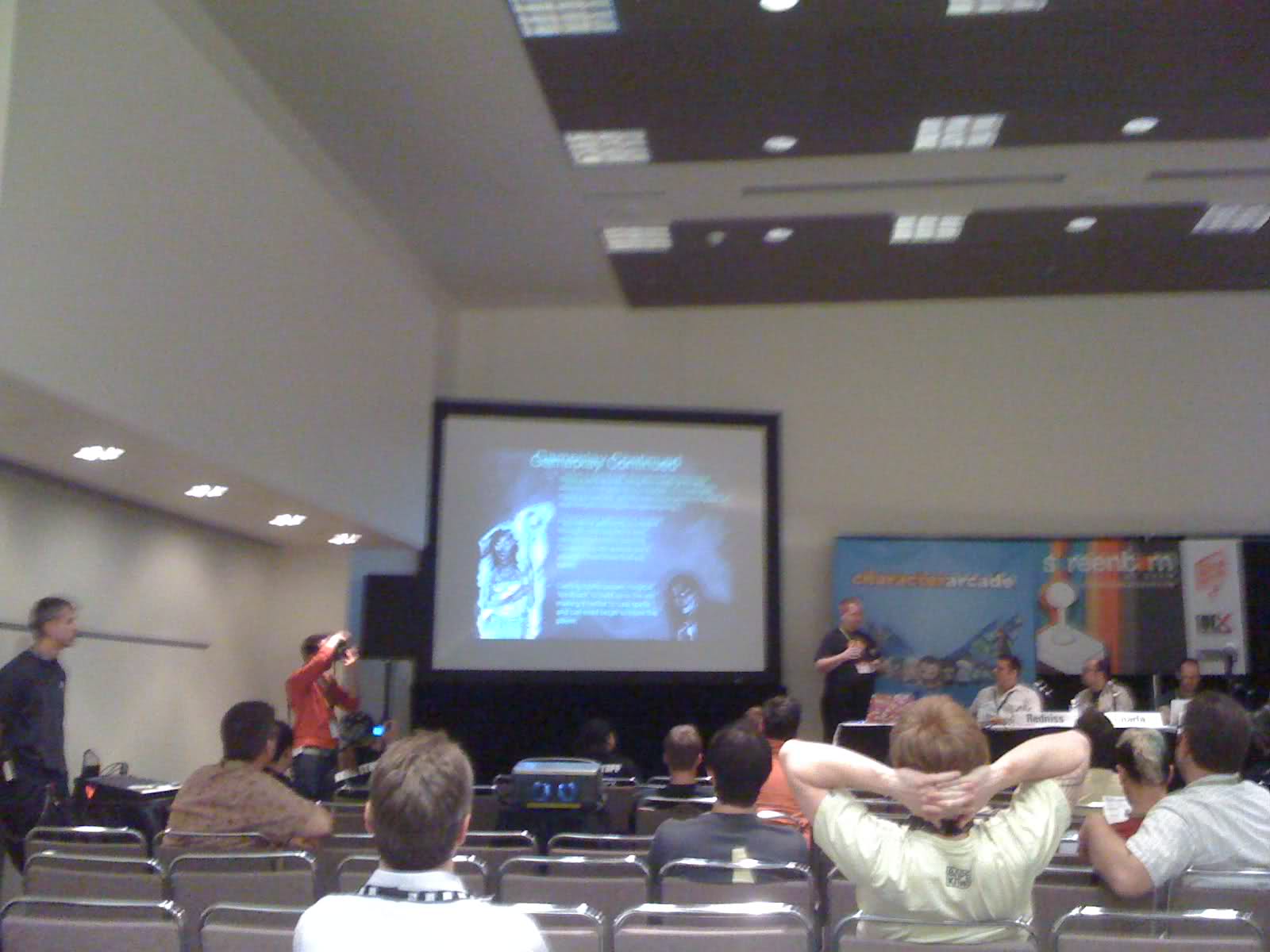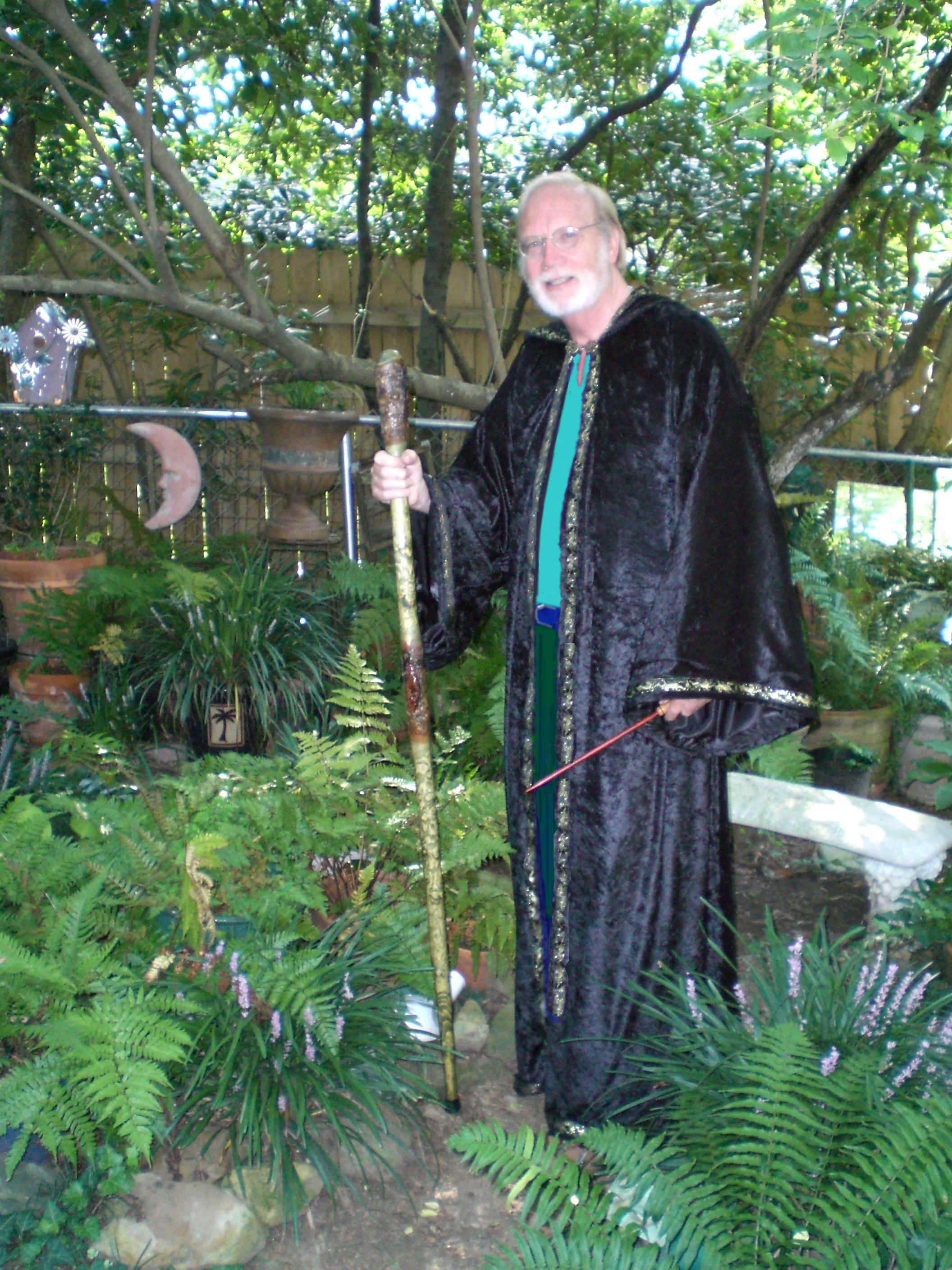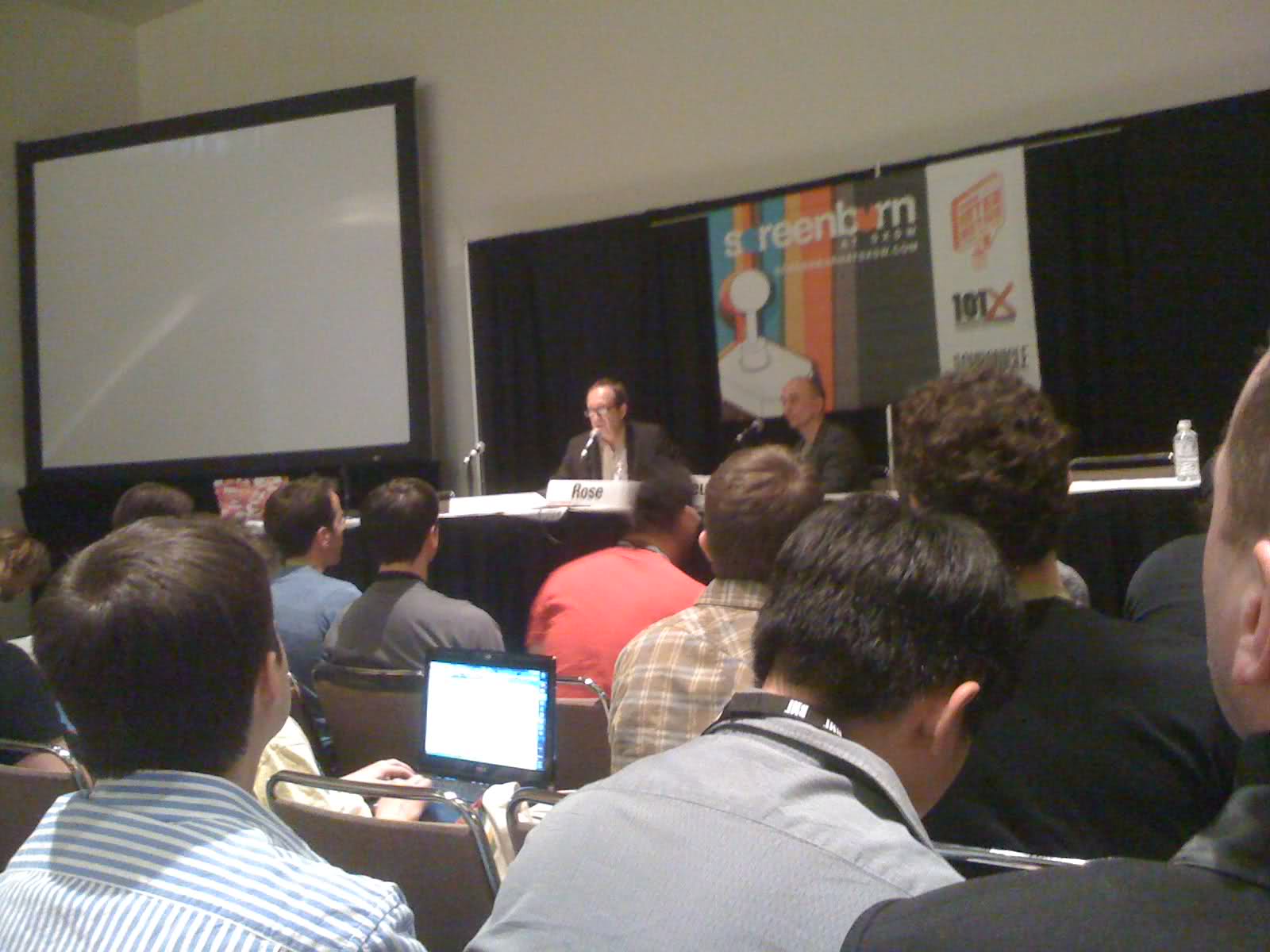
Don’t worry you didn’t miss anything. I skipped posting a Day 2 recap since everything I did was non-game related—you’ll be able to find that coverage on playthroughs.com (and perhaps dailytexanonline.com before that). The only ScreenBurn panel I went to yesterday (“Gaming the System”) turned out to have nothing to do with games or pretty much anything other than how crazy 4chan is—never again would I want to be locked in a room with those people. Oh and Leo Laporte crowd surfed. Yeah, that happened.

Day 3 has been the best day yet, despite having to walk all the way from Trinity & 3rd to my house on the other side of N. Lamar (so…damn…tired.) I’ve got interviews with Peter Molyneux, Game Salad creators, Comic Jumper and Fable 3 previews (both of which include new details not yet revealed), and a bunch of other cool stuff that I’ll be posting separately throughout the week.
Anyway, read on to hear about the two panels I attended today.
[Keep an eye on The Daily Texan's soon to launch gaming & tech blog, Playthroughs.com, for an expanded post that includes coverage of non-game related SXSWi coverage and a "Spotted @ SXSW" series where I talk to random tech and game icons about what they are looking forward to at SXSW. Here's the bad news: site isn't launching until next week…so, BOOKMARK IT, DUMMY!
You can also follow me on my brand spanking new Twitter page: @DTPlaythroughs]
AAA Game Design Competition
[w/ Adam Martin, Chris Carla, Jesse Redniss, Kain Shin, and Lori Durham]

Four aspiring game developers stood before a panel of local industry icons and a crowd of enthusiastic strangers, pitching the dream game they would make if given $15 million (in reality, all the receive for winning is a trophy and a pair of ‘gamer glasses’).
I can’t say I would have had the amount of courage the entrees had to get up in front of everyone, but I believe I have a handful of game ideas that are more original than what they had to offer*—I have a feeling others thought the same.
The first entry, Bike Club Games, was the most inspired of the four and also the most developed. Oddly enough, their pitch seemed the most convoluted with too much focus on their documentary that inspired the project, the culture that it highlighted, and not enough explanation of what the game would offer to the player long-term. The pitch was for three games (two too many), one of which seems to have already hit market; the following games in the series are a suite of mini-games where you perform idiotic things on bikes and a console MMORPG where you meet up with your friends and perform idiotic things on bikes. I imagine a cross between what EA Black Box is attempting with Skate 3 and the idiot energy of Tony Hawk’s Underground 2, but, unfortunately, the game wasn’t pitched this way.
[embed:http://www.youtube.com/watch?v=cxpAlHLD26s ]
Panelist, Adam Martin seemed hopeful of the game’s future despite losing in the competition: “I think Bike Joust didn’t have enough depth to be Triple-A, but I feel it will be most likely to be picked up by a publisher.”
Perhaps if they explained how the jousting would work, how players would develop their avatar and abilities, and gave a greater sense of atmosphere it would have won over the panel as well as the crowd that seemed to appreciate the imagination.
Next up was Robot Revolution, a 3rd person action game where you play as a highly customized robot and build it with your own parts. Finally! The crowd didn’t seem to be too enthusiastic; perhaps they have played Armored Core and Custom Robo as well.
The next two entries came from Patrick Cunningham. Before you assume he’s a prolific prodigy waiting be thrown in the spotlight, I should explain the premises of his two games. The first one, Grimore, is a generic fantasy RPG that sounds like Oblivion and probably would play like it to, and the other, Shadow Wars, is a cyberpunk MMO that sounds like Global Agenda but hopefully would play a bit better. I was ready to write it off until he proposed the idea of teams being oblivious of other team’s presence and objectives on a mission, leading to some interesting scenarios. It’s a neat idea surrounded by what are otherwise tropes of the genre.
Shadow Wars won at the end, which should have made me happy since I cheered it on. But, really, I just wanted someone else to be up there proposing a preposterous game idea that would capture my imagination and have me think, “That’ll never get made”, rather than thinking “Where have I played this game before?”

* Party Wizard: Enter a realm of wizardy, where every room is a party linking to party hallways that exit into bigger party rooms. You, the party wizard, must seek out other party wizards (controlled by other players) and challenge them with your move set by continuously typing “/dance” into your console. Eventually, you’ll unlock sweeter dance moves and level up. Once you reach level 50, we’ll send you, the true party wizard, a Russian mail order bride. Although, we’d have shut down the servers and moved out of the country by that point.
The Emotion Engine: Can a Video Game Speak to the Heart?
[w/ Peter Molyneux and Frank Rose]

If there’s one thing that the Q&A panel with legendary game design Peter Molyneux convinced me of it’s that Molyneux doesn’t know what he wants other than enough options in games so that any indecision is rendered irrelevant.
Not one to stand still, Molyneux has made some of the most exciting, original games of the past twenty years; most of which still lack equivalents, but have influenced the game industry at large, nonetheless.
Like many game designers, Molyneux was originally inspired by films but, in reflection, finds them to be a passive medium in comparison to video games: “Entertainment hits us like tidal waves and then disappears. If you really feel like these are your choices, you’re more likely to remember things.”
From Populous (1985) to Fable 3 (Fall 2010), Molyneux has been building games that allow players to interact with the world and shape their own story.
“Playing a computer game is like looking through a security window where you can’t touch anything on the other side. We want to break through that window,” Molyneux said. “I feel like we are explorers finding a new continent of emotion.”
Molyneux has often been characterized as being zealous to a fault, raising gamers’ expectations and delivering a game that feels like shareware in comparison to what was promised. Yet, when you meet him, there is a genuine excitement toward the medium that extends beyond selling a product, instead he is selling the future of the medium (or at least how he sees it). Clearly, Molyneux doesn’t have the answers as to where games will be in 10 years, but he has ideas that exist outside the constraints of genre and they can often be inspiring to hear in person.

“At the end of the day, what we all want and crave is control and power over our lives and that’s something computer games can give you,” Molyneux said.
Despite an audience that seemed to ask him questions as if he were the all-mighty God of video games—these questions varied from “How do we introduce enlightenment in video gaming?” to an aimless question on how games can emotionally resonate across race and culture—Molyneux is only a well educated man whose opinions are as fickle and unpredictable as anyone else in room. His views on Heavy Rain, for example, aren’t what one would expect from someone who started off the panel by stating his compassion for Bond villains and celebrating player choice in game design above all else.
After proclaiming Heavy Rain “brilliant” and the future of video games, he said, “Personally, I couldn’t play if for more than 20 minutes, because the world was so dark. I felt emotionally beaten up. You shouldn’t only involve people in the darker sides of choices but also the lighter sides of choices.”
Perhaps this is more representative of Molyneux’s light-hearted sensibilities toward life than solely game design. His sense of humor has always reflected on his games, but it is even more notable when in person. Despite all the great insight on game design and Fable 3’s mechanics, it’s his statement against an American formality that I’ll remember for some time to come: “Please, don’t man-hug British people. We find the closeness of the male genitalia unpleasant.”
VentureBeat's mission is to be a digital town square for technical decision-makers to gain knowledge about transformative enterprise technology and transact. Learn More
